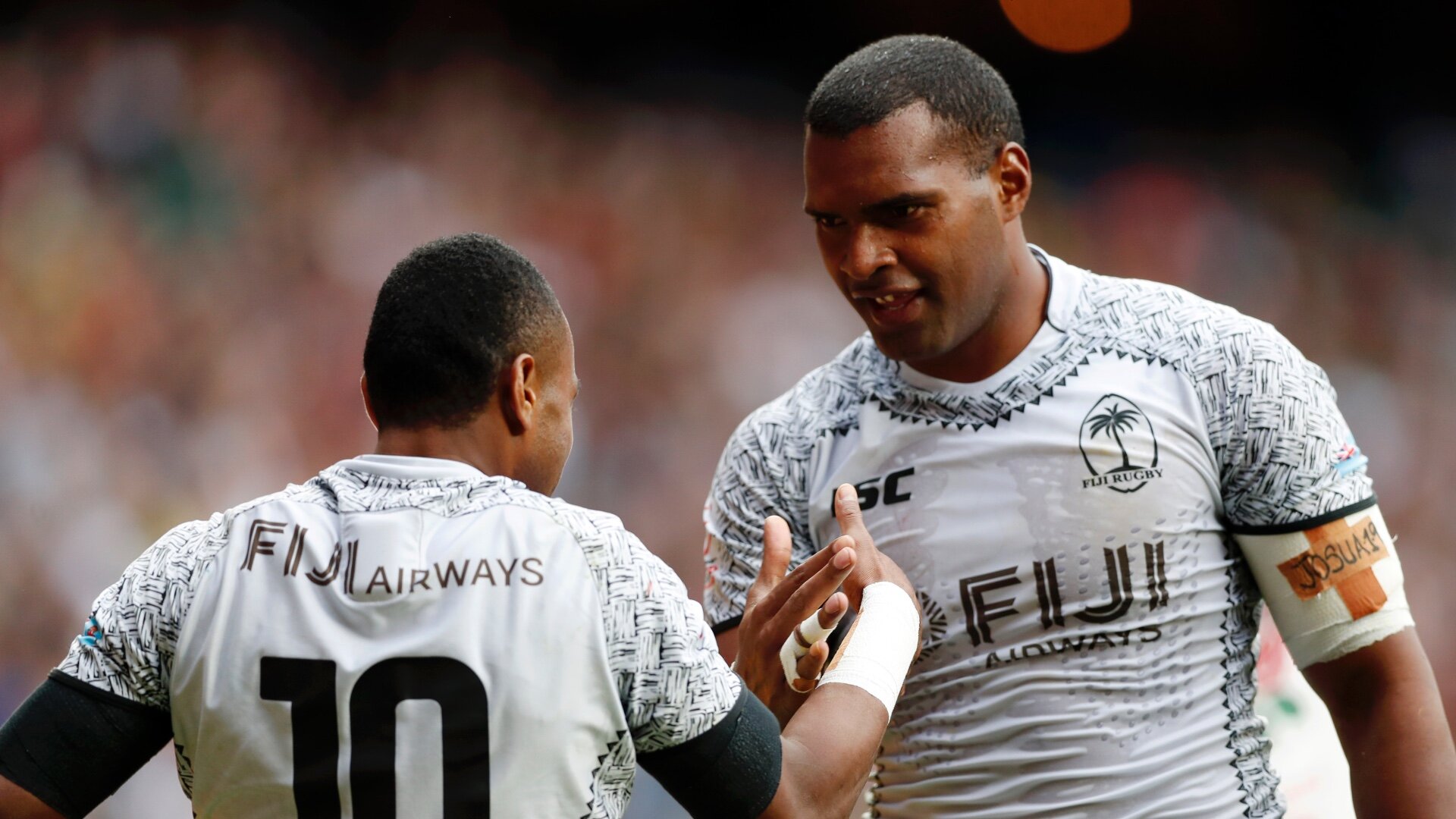'It is not something to be proud of and it's an area that we are constantly working on'

Gareth Baber has targeted fixing Fiji’s disciplinary problems after his players collected 26 yellow and two reds cards in last season’s HSBC World Rugby Sevens Series triumph.
Ahead of the opening leg of the new season series, which kicks off in Dubai on December 5, the Fijian boss revealed he wants to see better decision making from his players and limit the number of times they operate one man down during matches due to yellow or red card offences.
So frequently were they sanctioned that they ended the campaign tied with Tonga for the receipt of most cards during the series.
“It is not something to be proud of and it’s an area that we are constantly working on,” said Baber to RugbyPass. “You reflect on those yellows with the players and a lot of them came at crucial times under pressure.
“The natural way the game is played here in Fiji and how the boys have grown up means we have to educate them about how important it is to keep their discipline.
(Continue reading below…)
“What makes it difficult is that I see sevens being refereed differently from 15s and I had several conversations with the boys after the World Cup in Japan.
“They sat there watching the matches and were confused by some of the decisions given in 15s. We have to adapt to the referees in sevens to be able to create pressure.”
Celebrating the 50th year of sevens on Dubai, Fiji open their title defence against pool opponents France, Argentina and Japan in a series that has even more importance this season as the Olympic Games sevens in Tokyo next year makes it an eleven-leg campaign.
ICYMI:
“I’d turned up to the first day of pre-season and everyone’s having all their training kit handed out. My kit wasn’t there."https://t.co/05fnjO2dq2
— RugbyPass (@RugbyPass) November 21, 2019
Fiji are also the defending Olympic champions, having collected their nation’s first-ever medal at the Rio Games, defeating Britain in the 2016 final.
Paula Dranisinukula will captain the side in Dubai having recovered from a fractured leg and he lines up alongside Aminiasi Tuimaba, Vilimoni Botitu and Ratu Meli Derenalagi who each made significant strides in their first HSBC World Sevens Series last season.
Fiji will not be able to call upon the skills of Kalione Nasoko, their former captain, until March or April as he is still recovering from knee reconstruction surgery and is following a carefully planned rehabilitation programme.
Fiji will bring all the power to the desert.
Don't miss them at the #Dubai7s on 5-7 December. pic.twitter.com/UqizChoh0H
— HSBC SVNS (@SVNSSeries) November 22, 2019
With Fiji set to defend their Cape Town title a week after the Dubai opener, Baber added: “We want to make a fast start in Dubai but we know all of the teams have been doing their work in the off-season and can surprise you.
“We have done a huge amount of planning to put everything in place with the Olympic Games being the eleventh tournament.”
Fiji Sevens squad (Dubai and Cape Town)
Sevuloni Mocenacagi, Josua Vakurunabili, Isoa Tabu, Apenisa Cakaubalavu, Paula Dranisinukula (capt), Ratu Meli Derenalagi, Vilimoni Botitu, Waisea Nacuqu, Jerry Tuwai, Alasio Naduva, Aminiasi Tuimaba, Napolioni Bolaca, Kavekini Tabu, Terio Tamani.
WATCH: Nadolo, the compelling RugbyPass documentary on Fijian legend Nemani Nadolo














































































